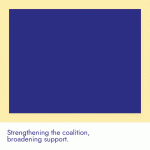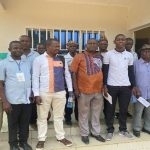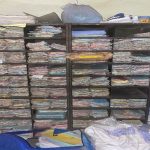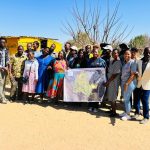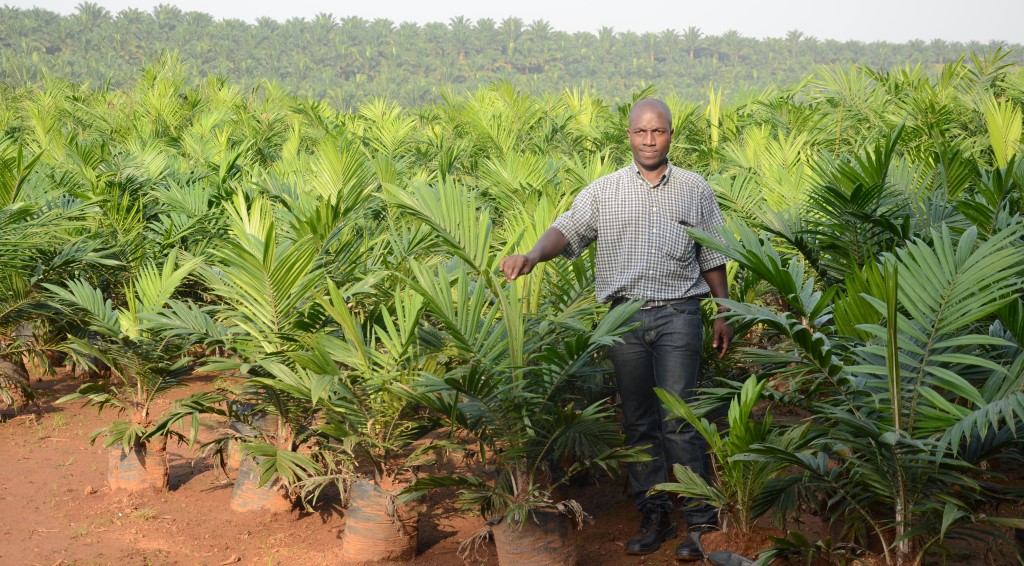
Of the estimated 800 million people who suffer from chronic hunger in the world today, 75% live and work in rural areas. Many rural people face on-going hunger because they are landless, they do not hold secure tenure, or their land sizes are so small that they cannot grow enough to feed themselves.
In order to strengthen land and natural resources tenure security in IFAD supported projects in Eastern and Southern Africa, IFAD entered into a partnership with GLTN in 2011, to implement the Land and Natural Resources Tenure Security Learning Initiative for Eastern and Southern Africa (TSLI-ESA) initiative.
The objectives of the programme are:
- To raise awareness, document and share tenure issues and tools used to address them;
- To develop capacity of IFAD staff and partners to address tenure issues; and
- To support selected IFAD supported investment projects implement the tools to address tenure security
Land and natural resource tenure issues in the Eastern and Southern Africa (ESA) Region
Rural land in most countries of the ESA region is predominantly under customary tenure that in most cases is not sufficiently protected by legislation. Management of customary lands is always challenging as it is mostly undocumented and perceived ‘unclaimed’ , which attracts interests from many stakeholders often resulting into land-related conflicts. The unfettered authority of land administration authorities to dispose of customary land, and the perception of losing access and ownership of the land are key disincentives for long-term land improvements which also hinder the use of such land by the farmers as collateral to access credit .
Furthermore, the weakness of institutions to administer customary land exposes it to encroachment, grabbing, degradation and in some instances, violent confrontations.
TSLI-ESA Intervention Theory of Change : Theory of change and impact pathway for TSLI-ESA is that awareness raising, learning and understanding of the range of tenure risks that the project beneficiaries are exposed to, the effects of these risks on the project outcomes, and the knowledge about the tools and approaches available to address the tenure risks, will motivate staff and partners of IFAD-supported projects to acquire skills to use the available tools.
Equipped with both tools and skills, IFAD staff and partners will develop the confidence and interest to select, adapt and implement the pro-poor, gender responsive and fit-for-purpose land tools and approaches to address the related risks in their respective projects, thereby enhancing security of rights which will, in turn, reduce conflicts and promote investment. Increased and secure investment will improve productivity, income and food security. Also, equitable and secure rights will direct some significant appropriate benefits of investments (income) to the poor, thereby reducing poverty. Best practices and experiences on the implementation of the land tenure tools are documented and shared at various platforms at national, regional and global levels so that they feed into the worldviews, narratives, discourses, policies and practices on land governance.
1. Knowledge Management
- A total of 217 participants from 39 IFAD-supported investment projects in 21 countries benefitted in 3 regional learning programmes 2013, 2015 and 2017.
- Sixteen country tenure analysis reports for Kenya, Uganda, Tanzania, Ethiopia, Rwanda, Burundi, Zambia, Malawi, Mozambique, Zimbabwe, Lesotho, Botswana, Angola, Swaziland, Namibia and Madagascar are currently being finalized. These reports will help in the design of current and future agricultural development projects with a bias to tenure security.
- Best practices and key lessons learnt on tenure challenges and innovative tools and approaches have been documented and shared widely among IFAD supported investment projects in the ESA region in form of learning notes and fact sheets on five thematic areas: women’s access to land; land and water rights; strengthening group rights; inclusive business models in addition to use and application of geo-spatial technologies.
- Key innovations and knowledge generated from the TSLI-ESA interventions in IFAD supported investment projects have been widely disseminated to contribute to global land tenure worldviews, national land policies, programmes and practices, including 15 conference papers that were produced and presented by 12 staff of IFAD-supported projects at the annual World Bank conferences (2013 to 2017), also shared among IFAD supported projects during the biennial TSLI-ESA Regional Learning Programmes.
2. Tool Implementation
- Four IFAD supported projects are using GLTN tools to strengthen security of tenure for project in their target communities
- Uganda – Vegetable Oil Development Project (VODPII) is using GLTN tools to imple-ment tenure regularization of squatter farmers, targetting is 1,200 households,
- Kenya – Smallholder Dairy Commercialization Project (SDCP) is using GLTN tools to map and record communal grazing land resources (targetting 998 households), and Upper Tana Natural Resources Management Project (UTaNRMP) is using GLTN tools to secure irrigation water rights (targetting 495 households.)
- Malawi – Smallholder Agricul-tural Production Project (SAPP) is using GLTN tools for integration of tenure indicators in moni-toring and evaluation
- Mozambique – Pro-poor Value Chain Development Project (PROSUL) in Mozambique is planning to use GLTN tools on pilot basis for issuance of Direito do Uso e Aproveitamento da Terra Rurale (RDUAT).
3. Capacity development
- Three (two-week) annual residential training programmes were delivered in 2014, 2015 and 2016 to 65 (49 men, 16 women) staff of 13 IFAD-supported projects and programmes from 11 countries on GLTN tools, gender and grassroots participation in good land govern-ance by Regional Center for Mapping Resources for Development (RCMRD), Nairobi, Kenya.
- Three country level orientation training workshops on GLTN tools for staff and partners of IFAD-supported projects were conduct-ed in Mombasa, Kenya, in 2014 (48 men, 17 women); Kampala, Uganda, in 2014 (29 men, 15 women), and Maputo, Mozambique, in 2015 (25 men, 8 women).
- Four staff of IFAD supported projects and programmes participated in the global workshop on tools for strengthening women’s land rights co-organized by GLTN and GROOTS Kenya.
- Ten project level training workshops were delivered by GLTN to 456 staff and communities in VODP in Kalangala and Mbale in Uganda; SDCP in Bomet and UTaNRMP in Embu, Meru and Kirinyaga, Kenya; and SAPP in Lilongwe, Malawi.
Challenges:
- Limited implementation time period of the TSLI-ESA Project vis-à-vis the structural nature of land tenure challenges. More interest and momentum are growing with more shared learning among projects.
- TSLI-ESA was not part of the design of the IFAD supported projects, as such, there was delay in integration of TSLI-ESA in the annual work-plans of some IFAD supported projects.
War forward:
- IFAD and GLTN will elaborate a framework for proactive engagement with IFAD supported investment projects throughout the project cycle stages of project planning and design, implementation, monitoring and evaluation;
- Based on the experiences of the TSLI-ESA, GLTN to develop an operational guidance tool for capacity development on tenure interventions in IFAD supported agricultural investment projects;
- IFAD and GLTN to promote the TSLI-ESA approach in other IFAD regions and with other similar development projects by other GLTN and IFAD partners.

